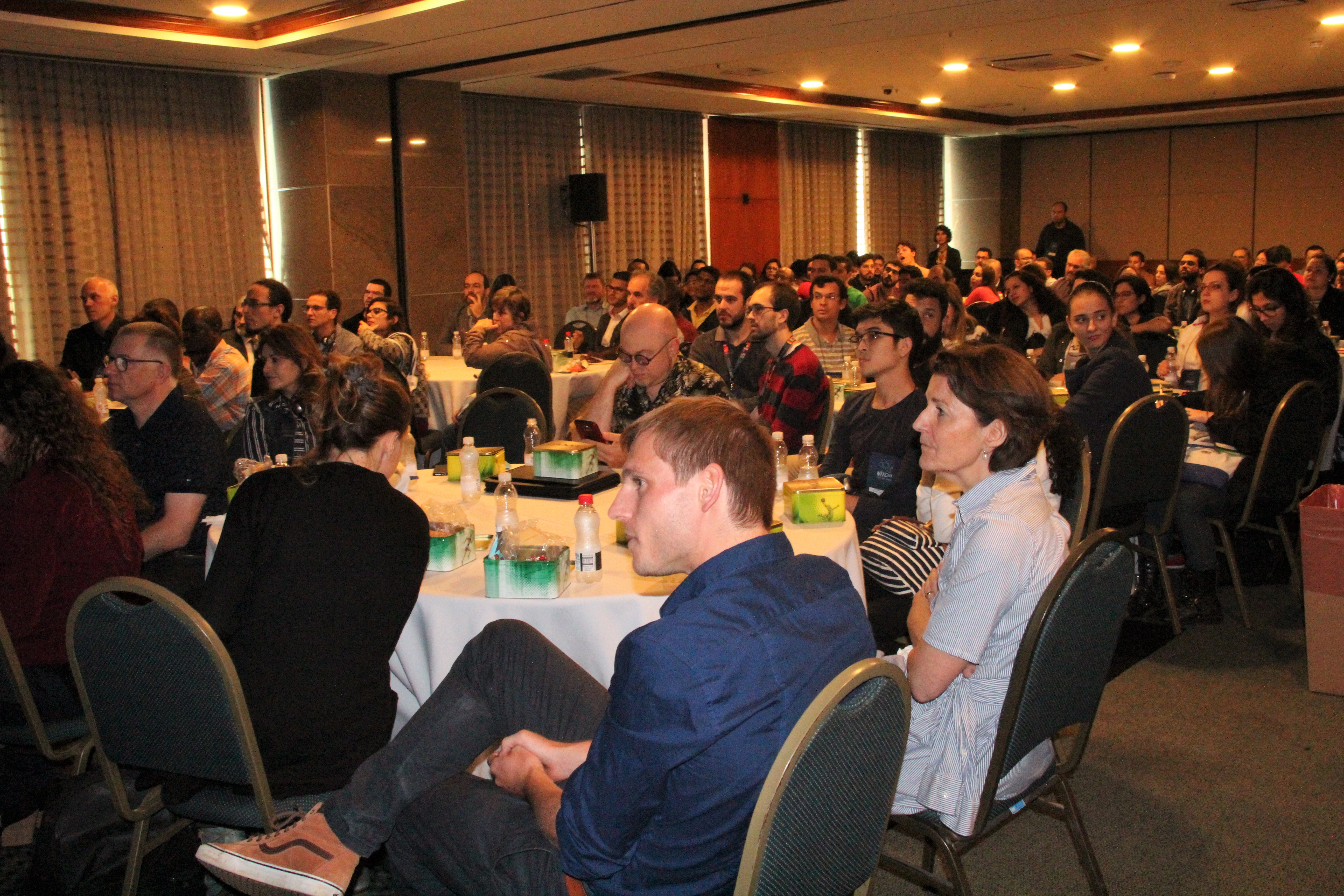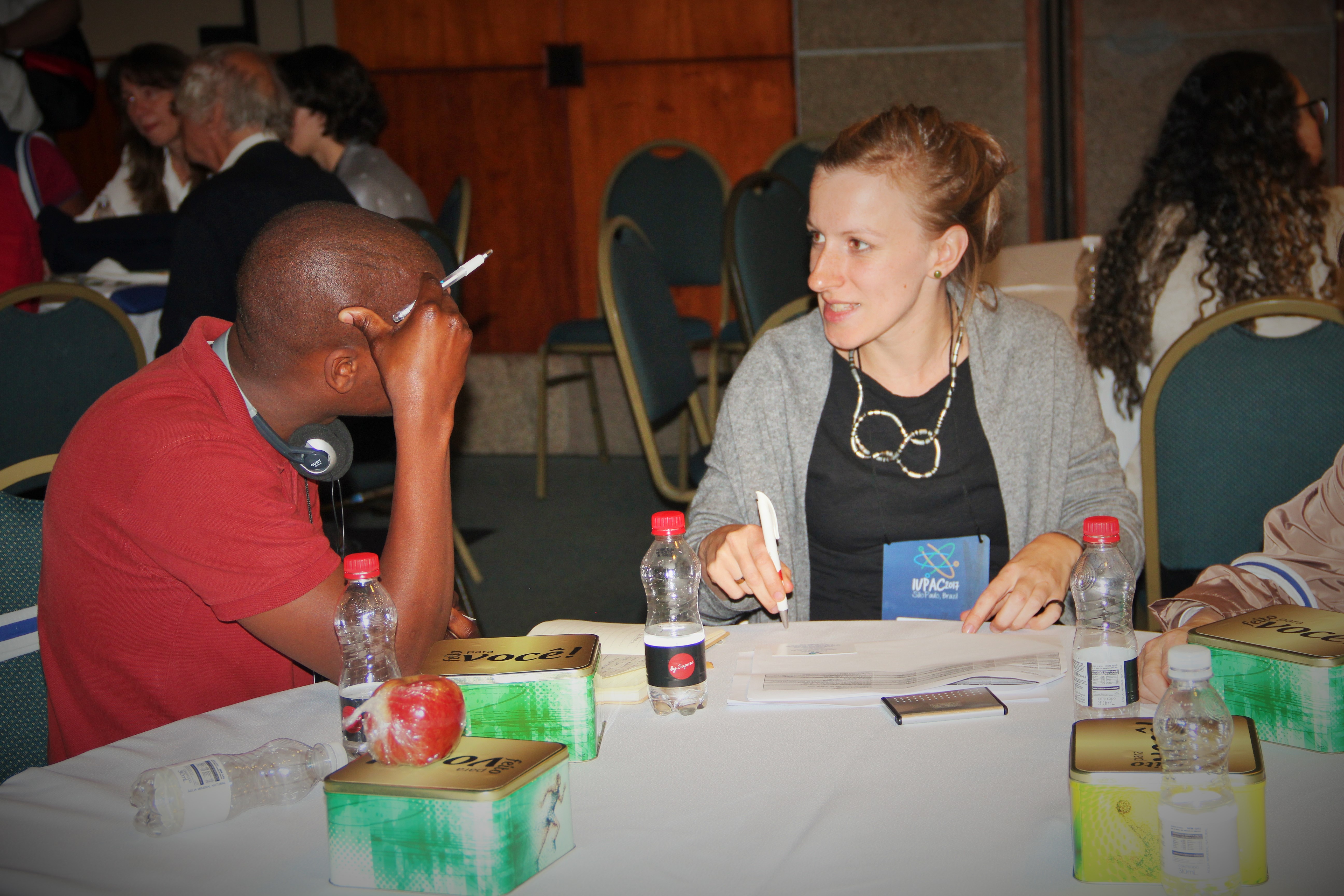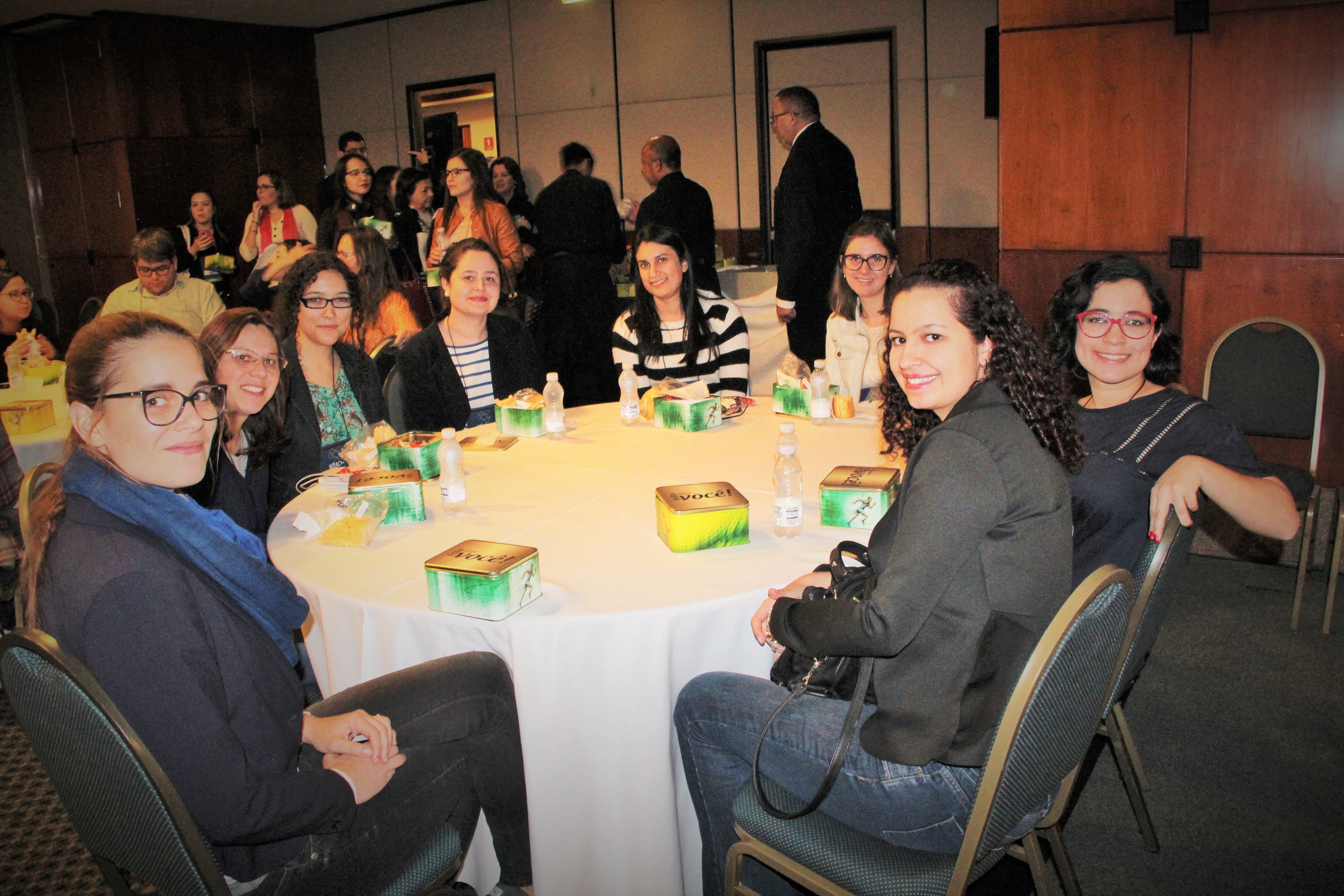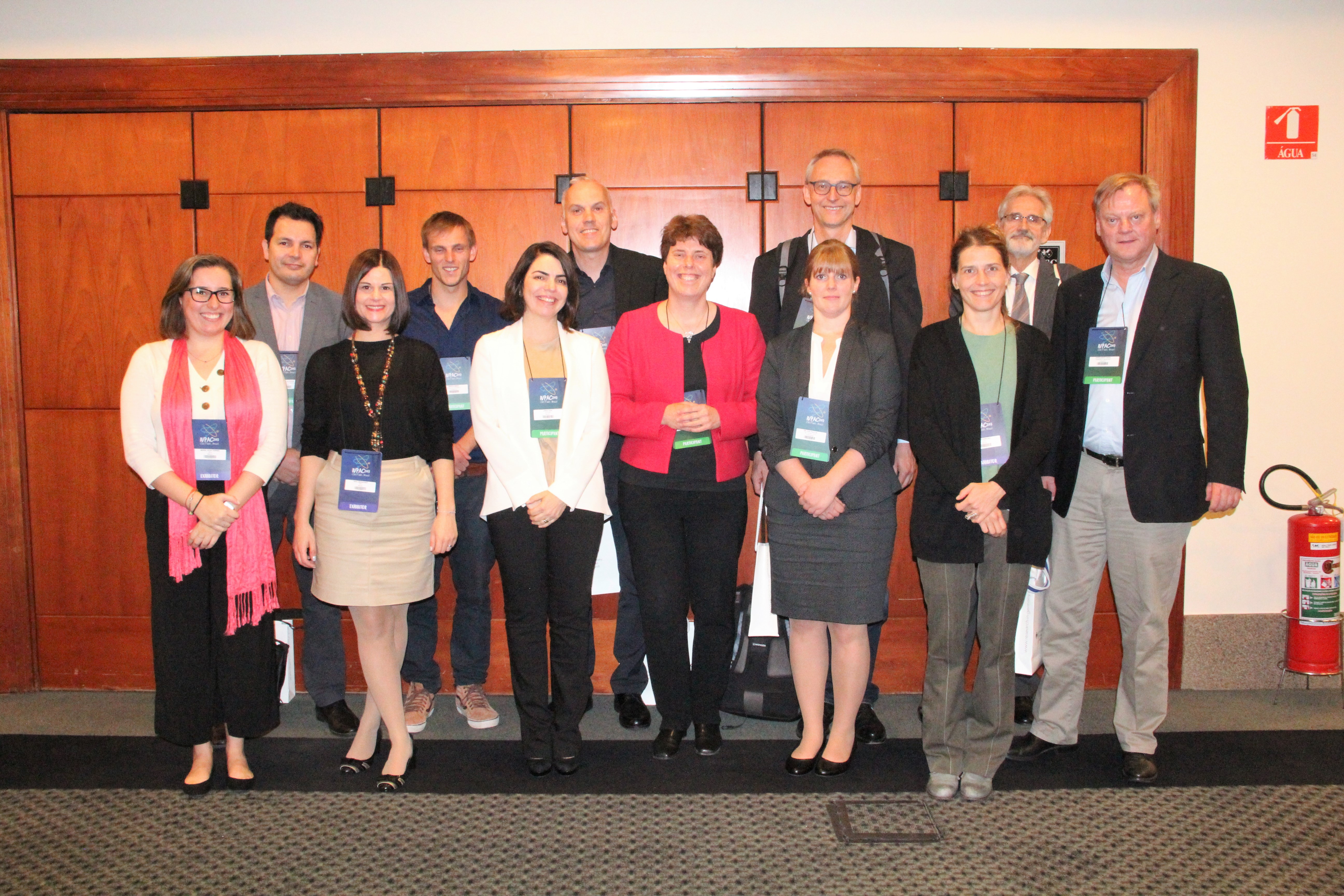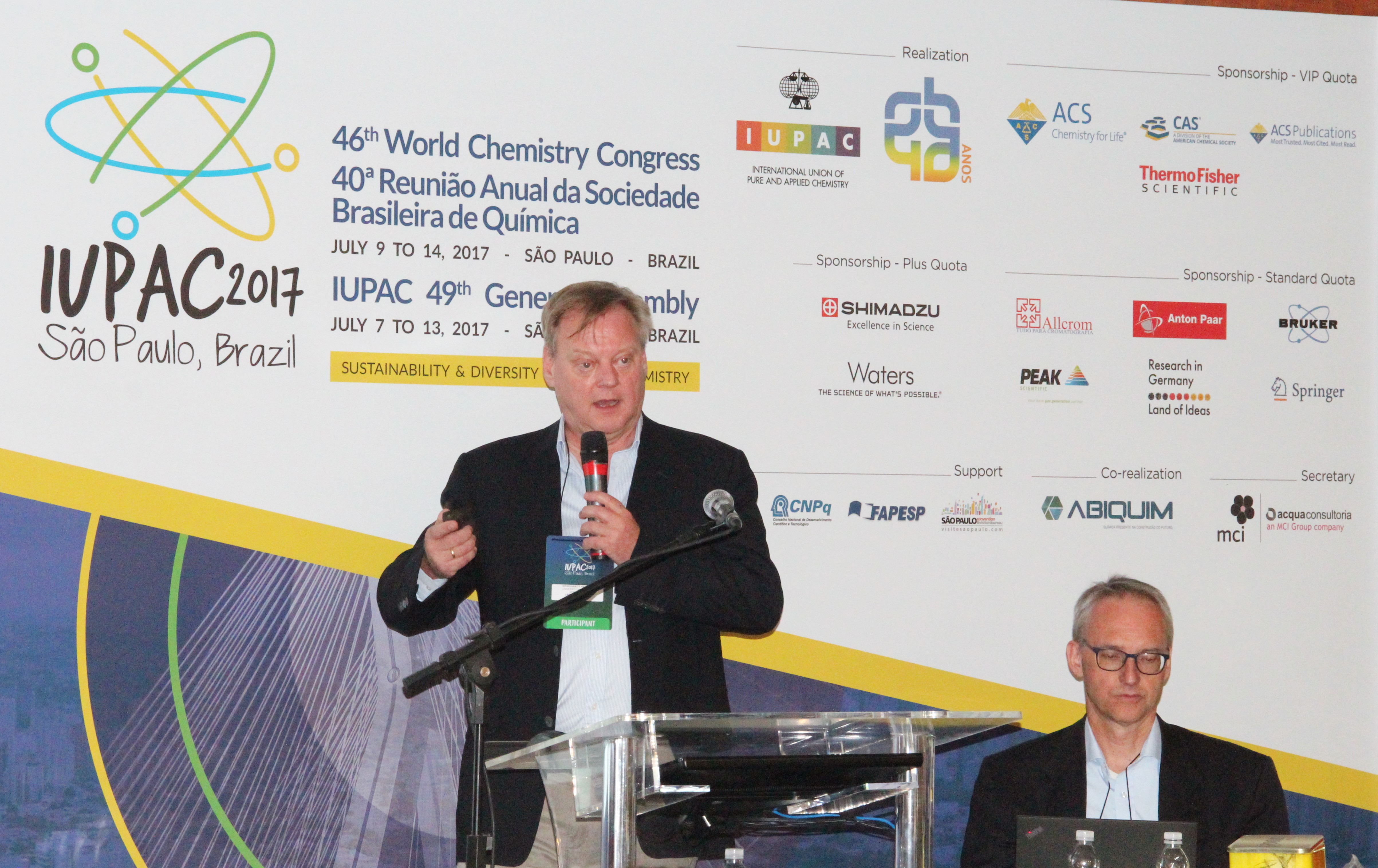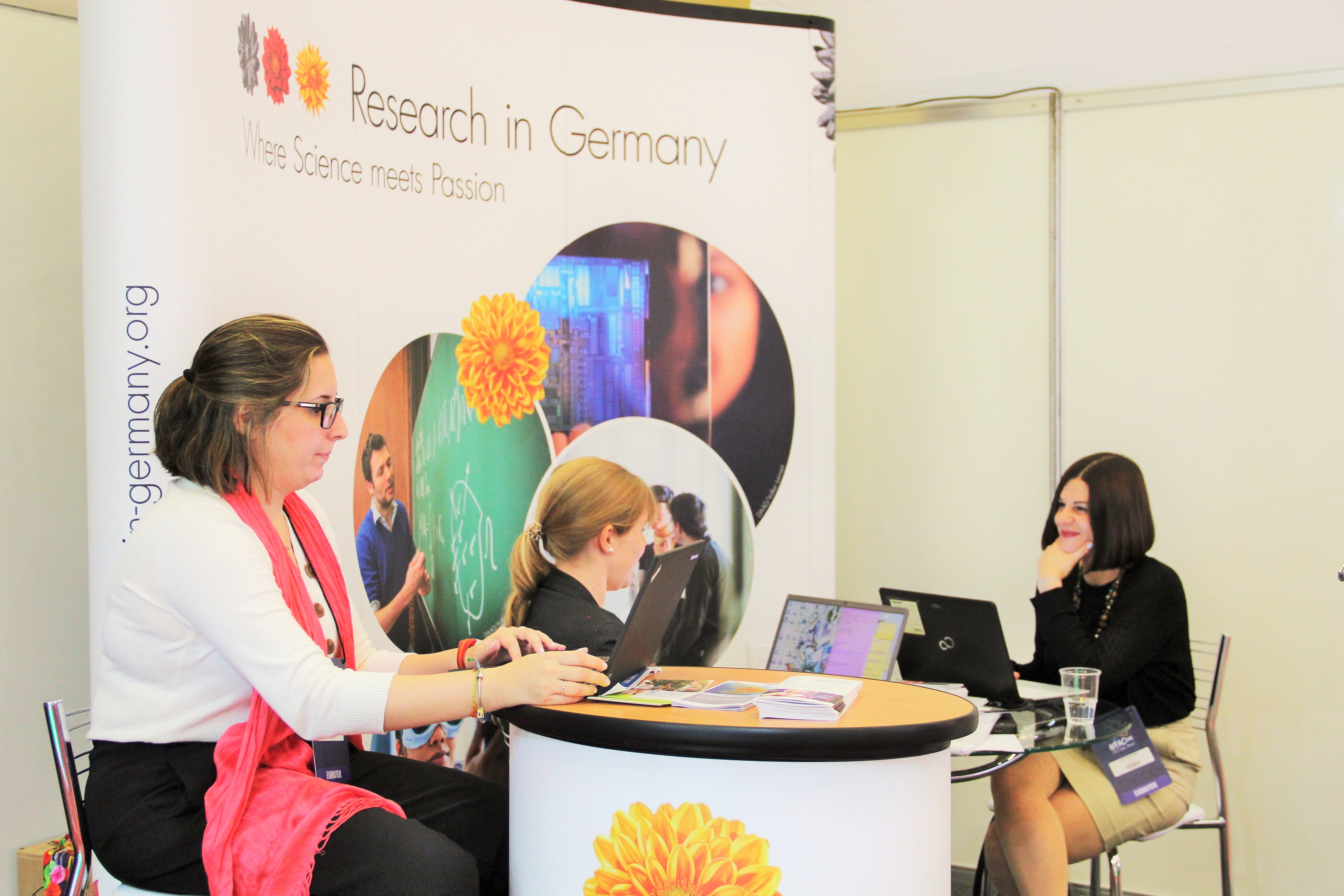DFG Welcomes Interested Audience to a Science Lunch at the IUPAC Congress
(14.07.17) At the 46th World Chemistry Congress organised by the International Union of Pure and Applied Chemistry (IUPAC) and held between 9 and 14 July in São Paulo, the DFG hosted a Research in Germany Science Lunch.
On 11 July, some 130 researchers in chemistry met for lunch to find out about research and funding opportunities in Germany. The event included presentations by five established researchers based at German universities and research institutions, who spoke about their work and their places of research. This was followed by information about fellowship and cooperation programmes offered by the funding organisations present: the DFG, the German Academic Exchange Service (DAAD) and the Alexander von Humboldt Foundation (AvH). During the second part of the event, there was an opportunity for participants to chat to the presenters at different tables, ask questions and benefit from individual advice.
Cerca de 130 pessoas compareceram na Lunch Session, organizada pela DFG
Dr. Ilka Paulus, a Programme Officer in the Chemistry and Engineering Sciences division at DFG Head Office in Bonn, attended the lunch as a representative of the DFG. In her presentation, she discussed DFG funding programmes and opportunities for collaboration between researchers in Germany and Latin America. One key funding instrument of interest here is financial support for the establishment of international cooperation, which makes initial contact possible. Joint workshops, research visits and trips abroad allow researchers to sound out the potential for joint project proposals. Paulus also explained additional funding opportunities for building on existing links with researchers in Germany. These opportunities range from bilateral project funding to International Research Training Groups, in which doctoral researchers complete a six- to twelve-month research visit to a partner institution abroad.
Also during the second part of the event, Prof. Dr. Helmut Galle, DFG Liaison Scientist at the University of São Paulo, and staff members from the DFG Office Latin America shared more in-depth information about the DFG and its funding programmes.
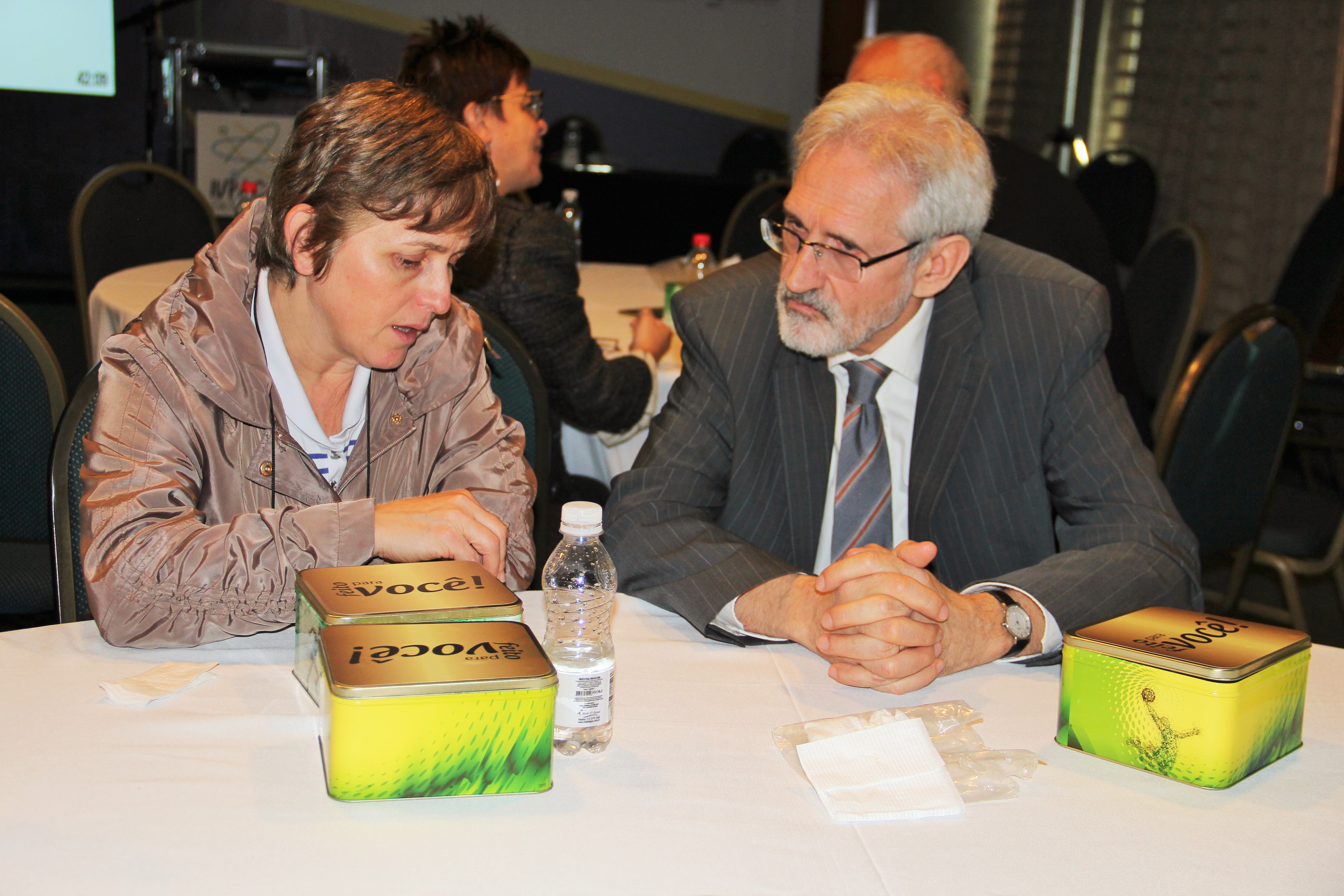
Helmut Galle, o representante acadêmico da DFG no Brasil, tirou dúvidas dos participantes da sessão
© DFG
The series of short presentations by researchers was introduced by Prof. Dr. Karl Leo from the Technical University of Dresden, where he works in the Integrated Center for Applied Physics and Photonic Materials (DC-IAPP). He introduced his institution and the interdisciplinary, internationally oriented master’s programme in Organic and Molecular Electronics. Leo placed particular emphasis on the centre’s strengths in research and development as well as its close links with industry. A highly respected physicist and Leibniz Prize recipient, he is also actively engaged in the Organic Electronics Saxony (OES) research cluster, which collaborates extensively with industry in a range of areas, from material research and modelling to organic technology and devices and product concept design.
Prof. Dr. Katharina Landfester, a Director of the Max Planck Institute for Polymer Research in Mainz, gave the audience an insight into the excellent research being carried out in the area of polymers. “It’s interesting to note that the first Max Planck Institute, which was founded about a hundred years ago, was dedicated to chemistry and geared towards carbon research. Today there are 16 institutes throughout Germany conducting research in specialist fields of chemistry,” she said. Her own institute alone – the Institute for Polymer Research – is made up of six research groups and a staff of 550, working in research, engineering and technology, about half of whom come from abroad. Landfester explained that it is possible to embark on research at the institute with only a master’s degree and that each institute is responsible for recruiting its own staff. “There is no standard selection process within the Max Planck Society, so the best approach is to contact the institute you are interested in directly,” she advised her audience.
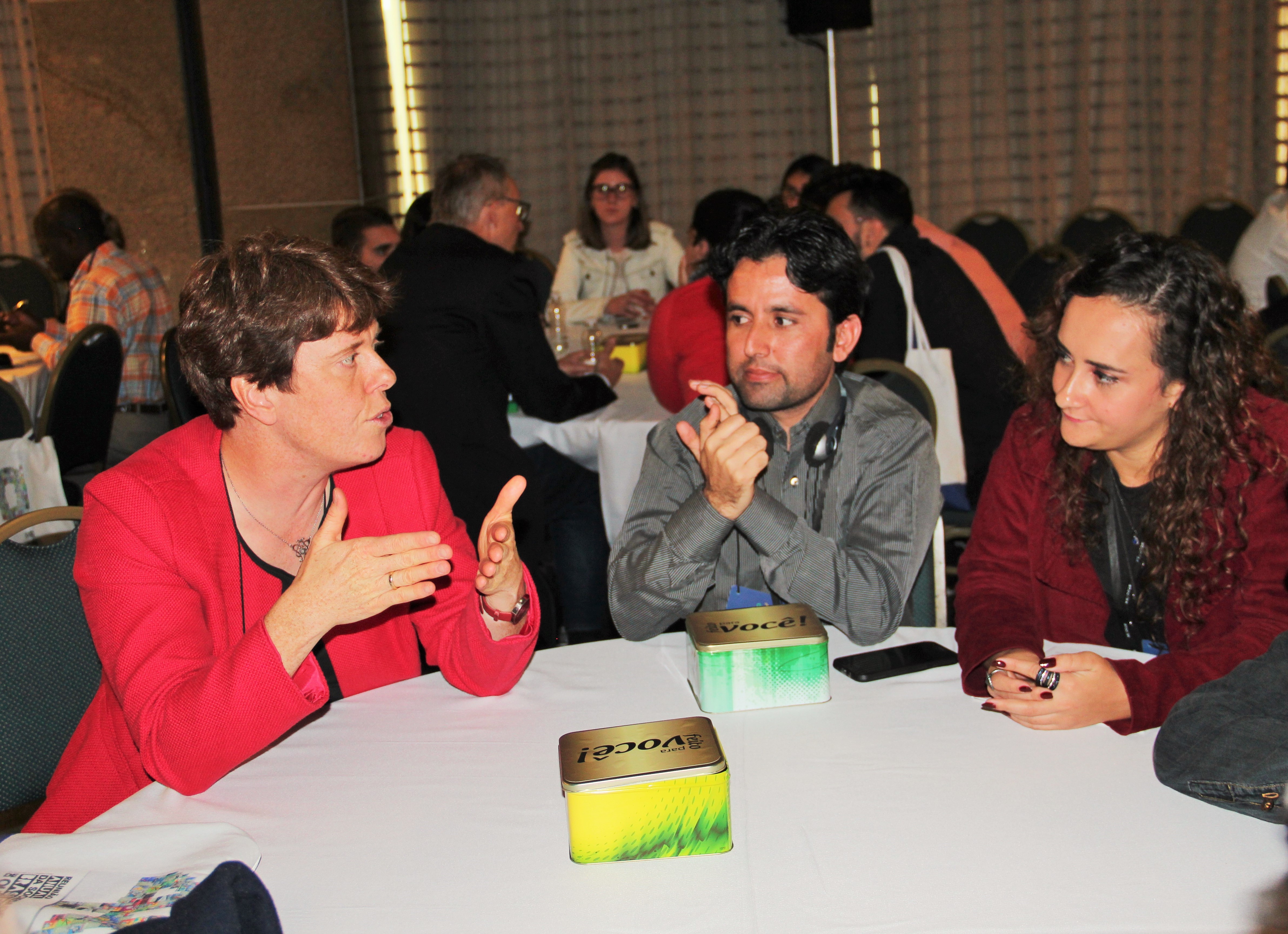
Katharina Landfester informou sobre os Institutos Max Planck que atuam na área da química
© DFG
Prof. Dr. Eric Meggers then spoke about the Faculty of Chemistry at the University of Marburg, where researchers work in a very wide range of specialist areas. The faculty collaborates closely with medical researchers and Max Planck Institutes in the region.
As a representative of the Free University of Berlin, Argentinian researcher and junior professor Dr. Marcelo Calderón spoke about his working group, which includes early career researchers in polymer research and organic chemistry. He also described his personal experiences of researching in Germany.
Ekkehardt Hahn apresentou o cenário de pesquisa em química na Universidade de Münster
© DFG
Finally, Prof. Dr. Ekkehardt Hahn rounded off the information event on research in Germany with his presentation on chemistry and pharmaceutics at the Institute of Inorganic and Analytical Chemistry at the University of Münster (WWU Münster). He explained the choice of master’s and doctoral programmes, subject-related Collaborative Research Centres, other research centres and the interdisciplinary Cluster of Excellence ‘Cells in Motion’, in which researchers in chemistry, biology, medicine, mathematics and computer science are collaborating to study how cells move and behave inside the body.
